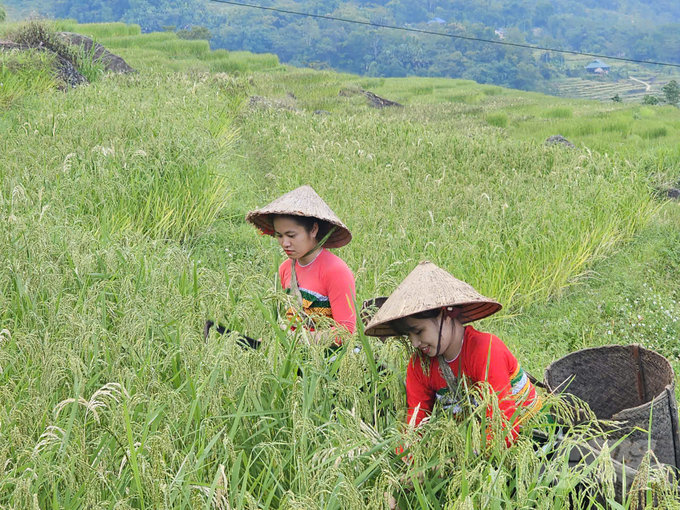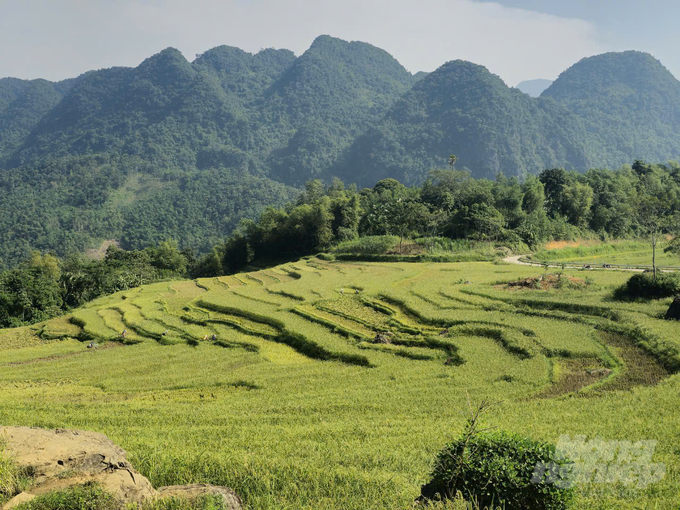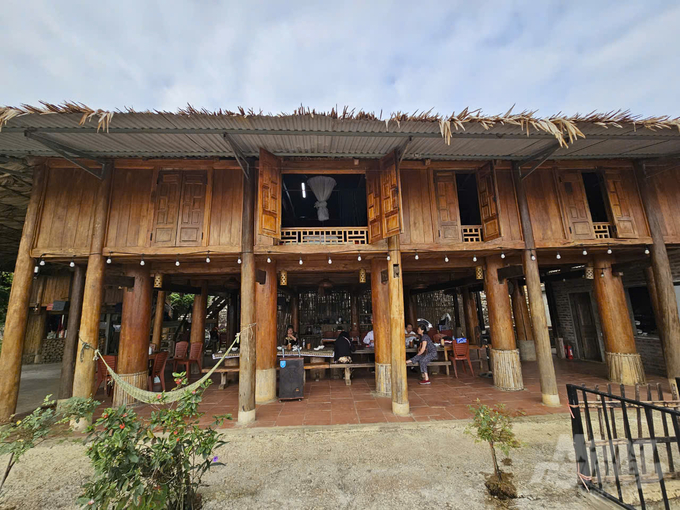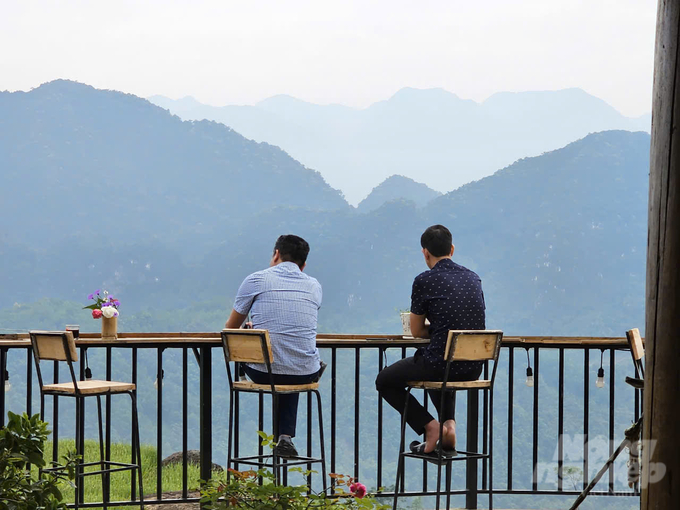November 21, 2025 | 20:23 GMT +7
November 21, 2025 | 20:23 GMT +7
Hotline: 0913.378.918
November 21, 2025 | 20:23 GMT +7
Hotline: 0913.378.918
Thanh Hoa currently has over 648,000 hectares of forests and forest land. The province's forest ecosystem is highly diverse, home to many rare species of animals and plants.
Capitalizing on this advantage, Thanh Hoa has implemented several solutions in recent years to promote the development of community-based and eco-tourism, which are linked to forest protection. This has helped many local people increase their income, significantly contributing to poverty alleviation in mountainous areas.

Pu Luong tourism area, famous for its stunning landscape. Photo: Quoc Toan.
In Ba Thuoc district, the Pu Luong - Cuc Phuong Biodiversity Conservation Project, initiated in 2002 by the international wildlife conservation organization FFI, has supported households in 10 villages in the buffer zone of Pu Luong Nature Reserve to engage in tourism. To date, Ba Thuoc district has more than 100 accommodation facilities, mostly homestays and resorts, concentrated in Thanh Lam, Thanh Son, and Co Lung communes.
In recent years, the number of tourists visiting Ba Thuoc has steadily increased. By September 2024, the total number of visitors had reached over 259,000, with nearly 50,000 being international tourists. Tourism activities have generated over VND 560 billion in revenue.

Pu Luong impresses visitors with its pristine beauty, including dense primeval forests and terraced rice fields. Photo: Quoc Toan.
Ms. Lo Thi Hoai, owner of a homestay in Bang village, Thanh Son commune, and leader of the Thanh Son community tourism group, shared: “Relying on the forest for community-based and eco-tourism has raised awareness and income for the villagers. Many young people no longer have to leave the village to seek work elsewhere; instead, they are employed at local accommodations. The community's agricultural products now have stable markets, and many families in the village have escaped poverty."

Stilt houses in Pu Luong were renovated into tourist accommodations. Photo: Quoc Toan.
Additionally, Thanh Hoa is home to Ben En National Park and part of Cuc Phuong National Park, as well as several nature reserves including Xuan Lien, Pu Hu, Nam Dong, Sen Tam Quy, eight protective forest management boards, and 11 scenic, cultural, and historical conservation sites. Each forest area in the province has its unique strengths for tourism development.
Currently, the province has over 30 eco-tourism areas, with some attracting large numbers of tourists, such as Ben En National Park, which receives around 30,000 visitors annually, generating over VND 1 billion in revenue. Other nature reserves like Xuan Lien and Pu Hu, as well as forest management boards in Lang Chanh, Ham Rong - Nui Do, Truong Le, An Tiem, Lam Kinh historical site, Sen Tam Quy forest, and eco-tourism sites in mountainous districts also welcome thousands of visitors each year for tours and experiences.

Pu Luong attracts tourists for sightseeing and experiences. Photo: Quoc Toan.
According to Mr. Trinh Quang Tuan, Head of the Nature Conservation Department (Thanh Hoa Forest Protection Sub-Department), to develop eco-tourism and community-based tourism linked to forest protection, Thanh Hoa is currently refining its policies to manage and encourage investment in eco-tourism and green tourism, with a focus on sustainable development.
Over the past years, the Forest Protection Sub-Department has worked with local authorities, forest management boards, and state-owned forest owners to promote awareness campaigns about compliance with the Forestry Law, forest protection, and development, while maintaining the environment, safeguarding biodiversity, and raising awareness among residents and tourists.
Translated by Kieu Chi

(VAN) Results from the Sustainable Durian Model Project in Dak Lak have confirmed the critical role of Yara Viet Nam in transferring advanced nutritional solutions to farmers.

(VAN) In Tuyen Quang province, livestock farmers have introduced effective models and innovative practices that significantly strengthen African Swine Fever prevention and control efforts.

(VAN) This is the study conducted by IRRI and Can Tho University on the rice straw value chain in Mekong Delta showing an economic potential of more than 6.6 trillion VND/year.

(VAN) By participating in cooperative economics, many farmers in Tay Ninh have overcome hardship, mastered clean dragon fruit cultivation techniques.

(VAN) The crossbreeding program in the former Binh Dinh province (now part of Gia Lai) has shown signs of decline, and urgent measures are needed to revive it and sustain past achievements.

(VAN) The agricultural sector agreed on a roadmap to pilot the MRV protocol and expand low-emission rice production from the 2025-2026 winter-spring crop.

(VAN) Agricultural extension officers in Quang Ninh do more than transmit knowledge; they have become a steadfast support system for farmers on the path to sustainable agricultural development.